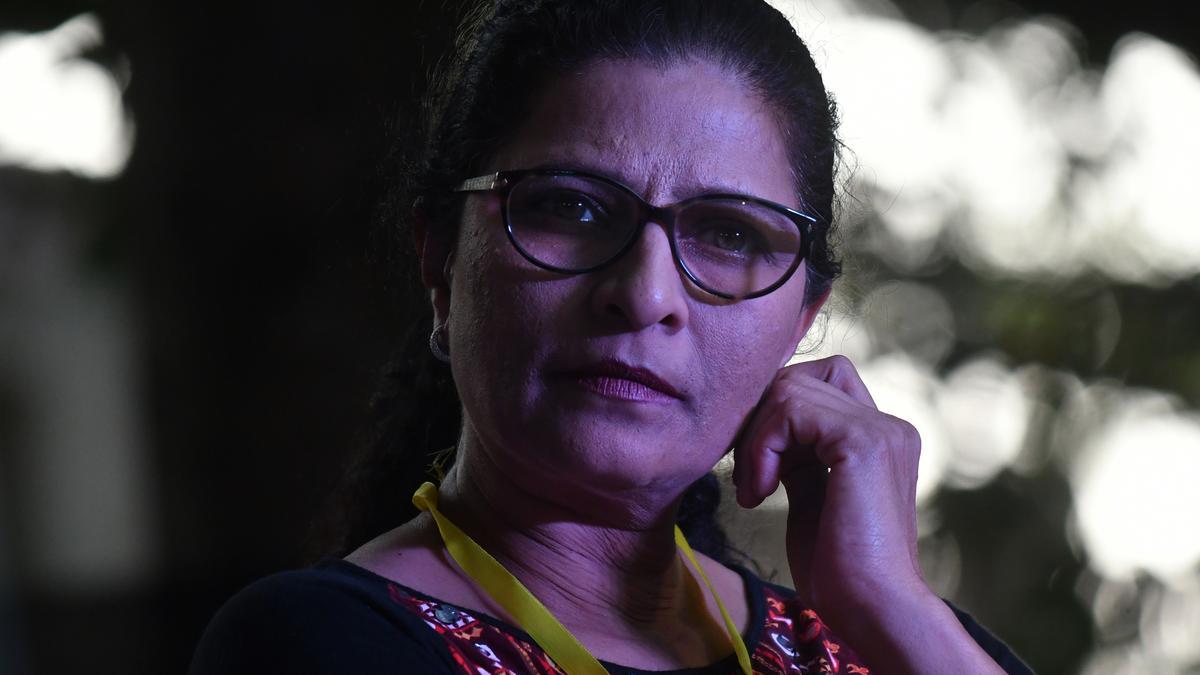
Two weeks after the K Hema Committee report sent shockwaves across several Indian film industries, artistes from the Kannada film industry (KFI) have responded to the ongoing issue. Actor Sruthi Hariharan has called for the formation of a committee in Sandalwood similar to the Hema Committee, leading to a significant movement within the industry. Members of the Film Industry For Rights and Equality (FIRE) have urged the Karnataka government to establish a committee led by a retired judge to investigate and report on the issues faced by women, including sexual harassment in the industry.
FIRE, a not-for-profit organization under the Societies Act, was formed during the #MeToo movement in 2018 when Sruthi Hariharan accused actor Arjun Sarja of sexual harassment. Led by filmmaker Kavita Lankesh, who serves as the president of the panel, and actor Chetan Ahimsa, who serves as the secretary, FIRE aims to combat issues like sexual harassment and the casting couch in the Kannada film industry.
On September 04, 2024, FIRE submitted a formal letter to Chief Minister Siddaramaiah. The letter demanded “comprehensive measures needed to create a safe and equitable working environment for all women in the industry.” The 153-member panel includes prominent figures such as actors Sudeep, Ramya, Kishore, Vinay Rajkumar, Sruthi Hariharan, Shraddha Srinath, Pooja Gandhi, Aindrita Ray, Diganth Manchale, Chaitra J Achar, Samyukta Hegde, and filmmakers B Suresha, Mansore, Jayatheertha, K M Chaitanya, and Pawan Kumar.
“Women have faced harassment in the film industry from time immemorial,” stated Kavitha Lankesh. “Those who did not comply with the whims and fancies of influential people were shunned from the industry. Women who question injustice face the danger of losing opportunities. That’s what happened with Sruthi as well.”
After Sruthi Hariharan’s complaint against Arjun Sarja, the investigation was closed due to a “lack of evidence,” three years later. “Women have complained in the past, but industry bigwigs have subdued them. Some female artistes get into legal battles that drag on for years, damaging their careers,” Kavitha added.
FIRE has called for a “thorough investigation into the systematic issues faced by women in the Kannada film industry, including instances of sexual harassment.” In addition, the organization has advocated for the “development of policies to ensure a healthy and equitable work environment for women in the industry.”
The letter from FIRE proposed, “A retired judge of the High Court or Supreme Court who has demonstrated a strong commitment to gender justice over her/his years of service should be appointed to head the committee.
.”
The impact of the Hema Committee report has echoed across other Indian film industries as well. Allegations of sexual harassment by multiple women have unsettled the Malayalam film industry. Renowned artistes from the Tamil, Telugu, and Hindi film industries have voiced their concerns, emphasizing the need for a safer work environment for female artistes.
Cinematographer Preetha Jayaraman, primarily associated with the Kannada film industry, made notable comments regarding the issue. “Even though I have always worked on professional film sets with basic amenities available for women, one can’t deny the fact that there is a significant factor of harassment when it comes to actresses and junior artistes,” she remarked. “Most individuals in the industry are aware of how production executives treat actresses and where the loopholes exist. People in power exploit daily wage laborers in the film industry. We must have zero tolerance towards these unfair expectations from women.”
Sandhya Rani, an author and screenwriter, also shared her perspective. “The harassment faced by women in the film industry was a known truth. It was the elephant in the room. Only after the Hema Committee report has there been an open discussion on the problem,” she pointed out.
“Women in the film industry are vulnerable because a film set doesn’t operate with fixed timings and explicit guidelines. Men in powerful positions make rules that often work in their favor, even if they cross boundaries. That’s why you see those accused continue to receive work while those who challenge them get sidelined by the industry,” she added.
Kavitha Lankesh stressed the importance of equal treatment for everyone on a film set. “I have heard stories of women being asked to work long hours even during their periods. How you treat women and junior artistes defines how safe your film set is.”
Published – September 04, 2024 06:50 pm IST
Kannada cinema / Indian cinema / Malayalam cinema












